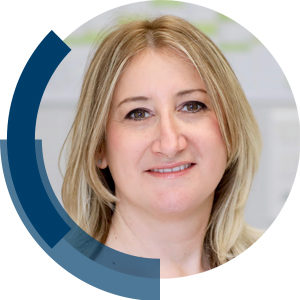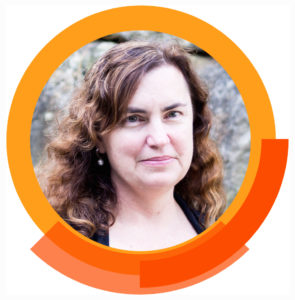We are delighted to welcome our new Associate Editor Dr Susanne Müller-Knapp from Goethe University Frankfurt, Germany to the RSC Medicinal Chemistry Editorial Board! Read on to find out more about Susanne and her thoughts about the journal and her new role.
More about Susanne
Susanne Müller-Knapp is Chief Operating Officer at the Structural Genomics Consortium, SGC, Frankfurt and Director of Operations of the Chemical Probes Portal.
She obtained a PhD at the Karolinska Institute in Stockholm, Sweden. After spending several years as postdoctoral researcher in the area of inflammation and gene regulation at the Karolinska Institute and at the DIBIT San Raffaele Scientific Institute in Milan, Italy, she joined 2004 the Structural Genomics Consortium (SGC), at Oxford University, where she coordinated the Epigenetic Probe Project and lead a group, focusing on the evaluation of novel chemical probes, cellular target engagement of these tool compounds and their biological roles. Her research now focuses on using chemical biology to dissect the role of specific targets in biology and disease with a main focus on cancer. In her role as Director of Operations for the Chemical Probes Portal, she focuses on providing data and knowledge on high quality chemical tools and establishing quality standards for chemical probes with diverse modes of action.
Susanne’s thoughts on our journal
We asked Susanne some questions about working with our journal, read on to see what she thinks.
What are your thoughts about RSC Medicinal Chemistry and the future of the journal?
“RSC Medicinal Chemistry publishes high-quality articles, adhering to rigorous standards to showcase compelling research in medicinal chemistry and drug discovery. The journal takes a forward-thinking approach, offering a variety of engaging themed collections. I especially value its commitment to Open Science, a principle I strongly support.”
How do you feel about starting your new role as an Associate Editor for our journal?
“I am delighted to have been selected as Associate Editor. I am eager to work with the RSC Medicinal Chemistry team and help drive the journal’s ongoing growth and success. Being able to help shaping the future of medicinal chemistry by supporting emerging trends and staying at the forefront of ground breaking research and innovative drug discovery strategies will be both exciting and fulfilling.”
As an Associate Editor, what subject areas would you like to see in RSC Medicinal Chemistry?
“As a biologist by training, I am passionate about enhancing communication between chemists and biologists to promote better annotation and more effective use of small molecules, ultimately improving reproducibility in chemical biology. Bridging this gap is crucial for advancing the field, and I find the prospect of helping to shape high-quality content that enriches both scientific understanding and practical applications incredibly rewarding. This interdisciplinary dialogue has the potential to drive more impactful research and innovation across disciplines.”
You can find out more about the rest of our Editorial Board members on our website and submit your article to them today!


















